Apr 2, 2024 12:59 PM
Saxophonist, Sonic Explorer Casey Benjamin Dies at 45
Casey Benjamin, the alto saxophonist, vocalist, keyboardist and producer who stamped his distinctive sounds on the…
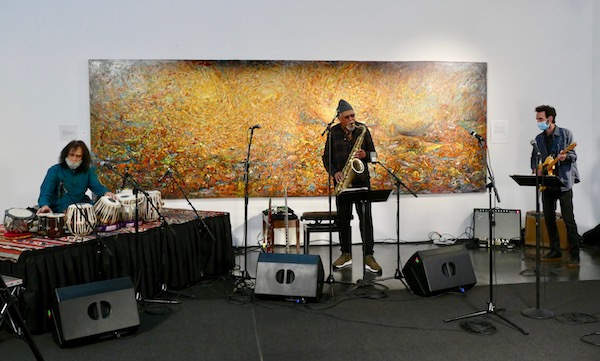
Since the pandemic began, saxophonist Charles Lloyd (center) has remained busy, performing in fresh ensembles and preparing the release of a new album.
(Photo: D. Darr)Despite 2020 being a troublesome year, Charles Lloyd refused to be inactive.
The 82-year-old saxophonist debuted two projects and recorded with one of his regular ensembles, while also offering up three remote concerts in as many California cities. That last performance—by his Kindred Spirits group with guitarist Anthony Wilson, pianist Gerald Clayton, bassist Reuben Rogers and drummer Justin Brown—was recorded in December at UCLA’s Royce Hall and will be streamed for free at 7 p.m. PST Jan. 16.
In late September, Lloyd performed with the Sangam ensemble alongside tabla player Zakir Hussain and guitarist Julian Lage at The Paul Mahder Gallery in Healdsburg. A month later, his new Ocean Trio debuted in a livestreamed performance from the Lobero Theatre in Santa Barbara. And cementing his vision for the 21st century, the saxophonist also is set to release Tone Poem, his third album with The Marvels, on March 12 through Blue Note. It features pieces by the bandleader, as well as interpretations of works by Gabor Szabo, Ornette Coleman, Leonard Cohen and others.
Via email, Lloyd recently detailed life during lockdown, streaming performances, assembling and debuting new bands during the pandemic and his latest album. Dorothy Darr—a photographer and Lloyd’s wife—typed up his answers.
The following has been edited for length and clarity.
How has the lockdown been for you?
I thrive in solitude and contemplation, surrounded by the nature where I live. While hiking in the hills, music is constantly flowing through my mind. So, part of 2020 felt very normal and welcome to me. I have loved staying home without the hassle and stress of travel. But the fact that I had to stay home without the possibility of choosing to travel to make music was not [very pleasant].
The invisible threat of COVID looming over all of us has been constant and stressful. The roar of politics has been deafening ... . So many lives needlessly lost to both COVID and racism, the cancer of America. And then there is the economic hit of it all, which has been particularly hard on musicians.
It is now 2021. A promise lies ahead of eradicating COVID and the possibility of routing out racism, if we let truth and love abide in the prevailing winds.
How has performing for a virtual audience been for you?
The energy exchange between the musicians and the audience is gone, but there is a concentration and focus that is not interrupted by applause.
Has Justin Brown played with you before? Typically, Eric Harland or Kendrick Scott has the drum seat.
I have known Justin for a number of years, and he has played with me several times. Originally, Eric was to be in the band at UCLA—and [guitarist] Marvin Sewell. But with COVID, we decided to have only California-based musicians to keep everyone safe. This was true for all three concerts I did this fall.
Although Julian has moved to Nashville, his folks still live in Santa Rosa. And he had been planning to drive out to see them, so he timed it around the concert in [nearby] Healdsburg. We wanted to keep everyone as risk-free and healthy as possible. I have a lot of fellow musicians here in Cali, and it felt miraculous for each of these formations to get together in the same space at the same time. No one Zoomed in their part.
For the first two streams, did the players or instrumentation determine the material? Did you just want to see how each group responded to what songs you brought?
I think about the musicians and instruments for each occasion, and I bring the music I would like to hear us play together.
Wilson, Hussain and Clayton are all the sons of well-regarded musicians. Have you played with any of their fathers?
When I was a student at USC, I was in Gerald Wilson’s Big Band along with Don Cherry, Harold Land, Eric Dolphy, Horace Tapscott, Clifford Jordan, Elmo Hope, Garnett Brown, Lester Robertson, Walter Benton and so many others. Just to be under the watchful ear of Wilson was a whole university unto itself.
I did not play with [Hussain’s father] Alla Rakha, but I listened to him with Ravi Shankar when I was in college and throughout the 1960s when I lived in New York. When Zakir and I played together for the first time in 2001, it was like a homecoming.
Was there any material from Tone Poem performed at the Royce Hall concert?
There were some new compositions performed at UCLA: “Sky Valley Doll” is written for Dorothy, who was born in Sky Valley, North Carolina. And “The Lonely One” was written for Lines Ballet. This is the first time both were performed with a larger ensemble.
Tone Poem’s first two tracks are Ornette Coleman compositions. Had Ornette been on your mind as you were preparing the new album?
Ornette is such a singular voice; he is frequently on my mind. ... I love him dearly. We go back to my college days in L.A., when we met at a jam session. We both heard something special in the other and spent a lot of time at each other’s apartment exploring sound and discussing concepts.
You also included Leonard Cohen’s “Anthem” on Tone Poem. Did you have any history with him?
I used to listen to Leonard Cohen a lot in my loft in the Village. The images in his poetry and his soulful, somber melodies spoke to the melancholy in me. I think [Bill Frisell, guitarist in The Marvels,] suggested trying “Anthem,” which has a haunting melody. And if you know the lyrics, it adds another layer: ”Ring the bells that still can ring/ Forget your perfect offering/ There is a crack in everything/ That’s how the light gets in.” DB
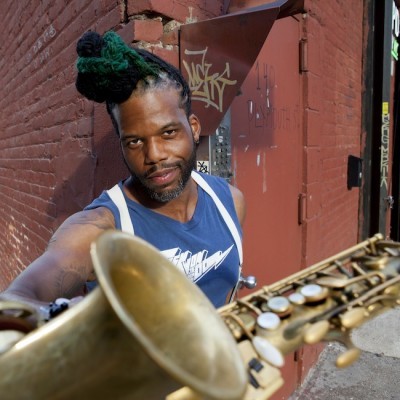
Benjamin possessed a fluid, round sound on the alto saxophone, and he was often most recognizable by the layers of electronic effects that he put onto the instrument.
Apr 2, 2024 12:59 PM
Casey Benjamin, the alto saxophonist, vocalist, keyboardist and producer who stamped his distinctive sounds on the…
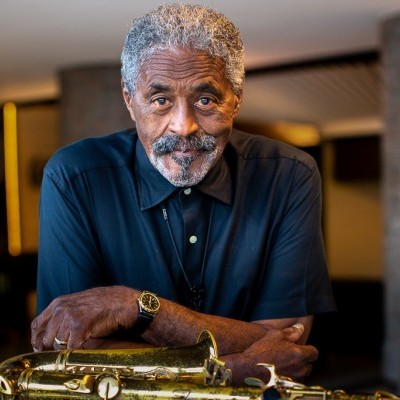
“He’s constructing intelligent musical sentences that connect seamlessly, which is the most important part of linear playing,” Charles McPherson said of alto saxophonist Sonny Red.
Feb 27, 2024 1:40 PM
“I might not have felt this way 30 to 40 years ago, but I’ve reached a point where I can hear value in what people…
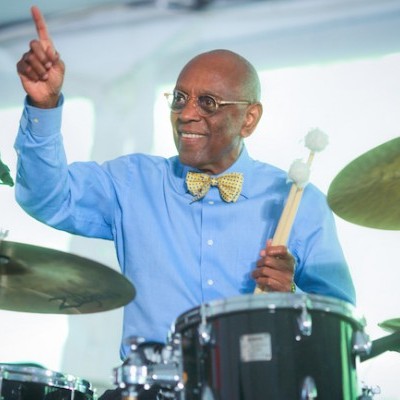
Albert “Tootie” Heath (1935–2024) followed in the tradition of drummer Kenny Clarke, his idol.
Apr 5, 2024 10:28 AM
Albert “Tootie” Heath, a drummer of impeccable taste and time who was the youngest of three jazz-legend brothers…
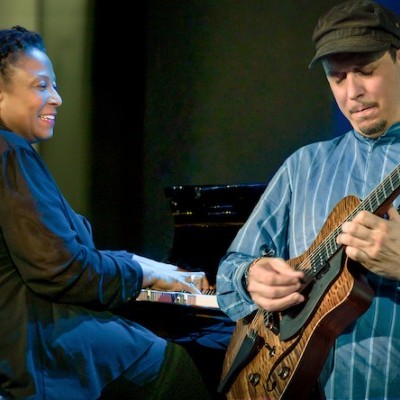
“Both of us are quite grounded in the craft, the tradition and the harmonic sense,” Rosenwinkel said of his experience playing with Allen. “Yet I felt we shared something mystical as well.”
Mar 12, 2024 11:42 AM
“There are a few musicians you hear where, as somebody once said, the molecules in the room change. Geri was one of…
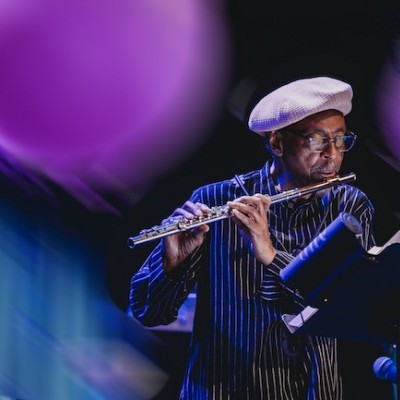
Henry Threadgill performs with Zooid at Big Ears in Knoxville, Tennessee.
Apr 9, 2024 11:30 AM
Big Ears, the annual four-day music celebration that first took place in 2009 in Knoxville, Tennessee, could well be…